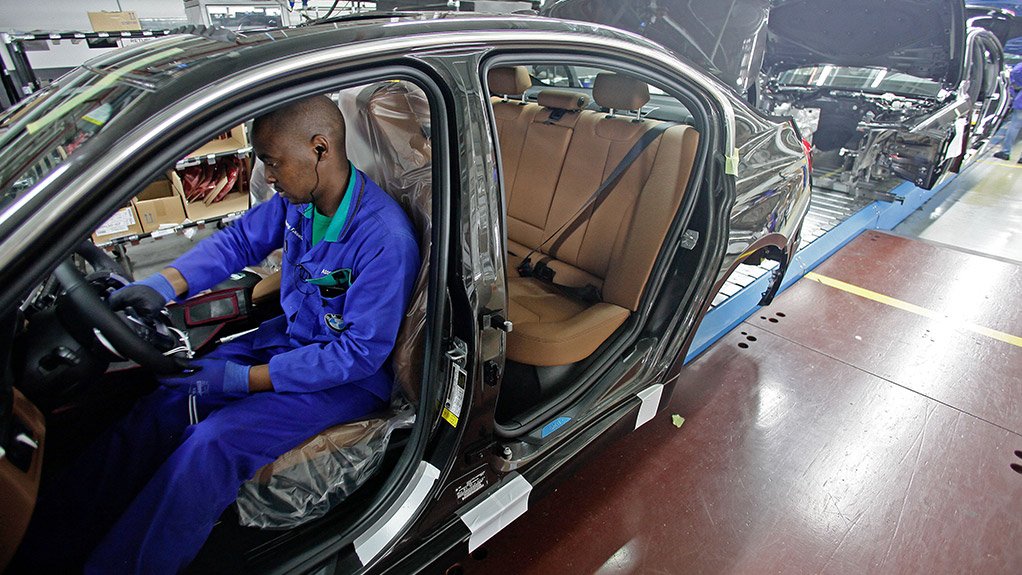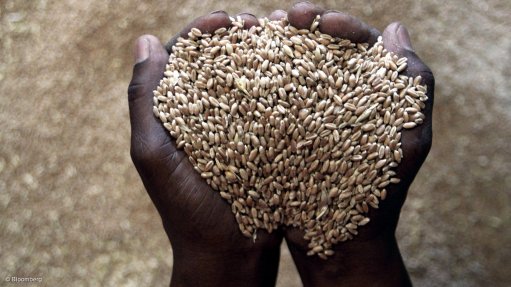Prioritise labour-intensive industries – EU Chamber


DRIVING GROWTH? Industry stakeholders call for greater public-private engagement and warn against prioritizing high-end high-precision industries
Photo by Bloomberg
The European Union Chamber of Commerce and Industry in Southern Africa (EUCCIISA) believes that the manufacturing sector and the Department of Trade and Industry (DTI) should prioritise less complex, labour-intensive production – as opposed to high-end, high-precision production – to increase the employment rate and jump-start the economy.
EUCCIISA senior adviser Ignaz Fuesgen notes that socioeconomic development cannot occur without job creation and that, at present, the public and private sectors “need to set aside their individual interests and concentrate on creating a relevant framework for entry-level jobs.”
He and EUCCIISA regional director Stefan Sakoschek believe that, to facilitate job creation, the aforementioned stakeholders should re-examine the viability of producing goods that are relatively easy to mass-produce and for which there is a market domestically and internationally. They advise that government consider the manufacture of pharmaceuticals, cosmetics, medical products and equipment, and strengthening the agroprocessing, green industries and business process outsourcing sectors.
Manufacturing and production processes tend to be either knowledge-, capital- or labour-intensive, or a combination of the three. Sakoschek notes that, owing to the acknowledged skills deficit, the diminishing amount of foreign and domestic investment and growing levels of unemployment, concentrating on less complex labour-intensive processes is the most feasible option.
Moreover, Fuesgen advises that stakeholders revisit the overall supply chain, as the current gaps present hindrances and opportunities. “Often, manufacturers will find that they need to import preassembled components because they aren’t made locally. It is a frustration that also presents a business opportunity.”
He comments that the broadly outlined government plans and initiatives, however well intentioned, often overlook challenges at lower, more sector-specific levels. He believes that the DTI should look at the supply chain more comprehensively. “There’s no point in looking at the end of the chain and attempting to ramp up exports if there are problems plaguing suppliers and logistics providers at the beginning and middle . . .”
Sakoschek reiterates that the current government programmes and initiatives might not necessarily generate the rapid employment growth the country requires.
Ipap
The 2016/17 Industrial Policy Action Plan’s (Ipap’s) key focal areas are public procurement, allocating industrial and financing incentives, leveraging the devaluation of the rand, growing exports and the automotive sector, and minimising red tape.
Fuesgen notes that increasing localisation targets for government departments and State-owned entities is an admirable and relatively attainable goal, but points to problems in the procurement process, such as the tendency to prioritise cost over quality, corruption and drawn-out bidding processes, which might deter local suppliers. “Local job creation and production should have first priority in that regard,” he adds.
Sakoschek states that the notion that local manufacturers could leverage the weak rand is extremely flawed. Manufacturers often have to import materials, components and equipment to manufacture their products, which results in a significant portion of their costs being adversely affected by the weak rand. This negates any potential gain of selling at a comparatively lower price.
He notes that even the automotive industry, one of the main export industries, does not benefit from a weak rand. “Automotive products are priced for the international market.” Sakoschek says that, unlike local manufacturers that are earning in rands, automotive companies are earning in dollars: “A BMW costs $20 000 or R200 000, regardless of whether its manufactured in Germany or South Africa.”
Further, since a significant portion of the automotive production process is automated, the sector might not be as big an employer as the DTI expects it to be, he adds.
Fuesgen points out that incentives aimed at enticing companies to build their manufacturing facilities in or move them to South Africa lack forethought. “Government needs to realise that decisions to invest are based on the available infrastructure (specifically in terms of electricity, water and transport), the political environment and policy framework – all of which have cost implications.”
Moreover, South Africa is one of many countries competing for investment. “South Africans tend to think we’re competing with Nigeria and other regional players,” Fuesgen notes, adding that, while this is true, South Africa is also competing with the likes of Singapore, India, Brazil, Israel, China and Korea.
He comments that South Africa needs to position itself in terms of the global economic environment and conduct sector-specific benchmarking exercises to facilitate real development. “We need to consistently evaluate where we are in terms of skills, labour and infrastructure on a sector-by-sector basis in relation to developed and developing countries before highlighting areas for improvement, and learn from countries that rank higher than us.”
Sakoschek also states that, unless government is willing to regulate noncompliant imports more rigorously, all the planned incentives, initiatives and programmes will be to no avail: “Why should local manufacturers produce a product that costs more specifically because it complies with the various materials and quality stipulations when noncompliant poor-quality products are available at a reduced cost?”
Comments
Announcements
What's On
Subscribe to improve your user experience...
Option 1 (equivalent of R125 a month):
Receive a weekly copy of Creamer Media's Engineering News & Mining Weekly magazine
(print copy for those in South Africa and e-magazine for those outside of South Africa)
Receive daily email newsletters
Access to full search results
Access archive of magazine back copies
Access to Projects in Progress
Access to ONE Research Report of your choice in PDF format
Option 2 (equivalent of R375 a month):
All benefits from Option 1
PLUS
Access to Creamer Media's Research Channel Africa for ALL Research Reports, in PDF format, on various industrial and mining sectors
including Electricity; Water; Energy Transition; Hydrogen; Roads, Rail and Ports; Coal; Gold; Platinum; Battery Metals; etc.
Already a subscriber?
Forgotten your password?
Receive weekly copy of Creamer Media's Engineering News & Mining Weekly magazine (print copy for those in South Africa and e-magazine for those outside of South Africa)
➕
Recieve daily email newsletters
➕
Access to full search results
➕
Access archive of magazine back copies
➕
Access to Projects in Progress
➕
Access to ONE Research Report of your choice in PDF format
RESEARCH CHANNEL AFRICA
R4500 (equivalent of R375 a month)
SUBSCRIBEAll benefits from Option 1
➕
Access to Creamer Media's Research Channel Africa for ALL Research Reports on various industrial and mining sectors, in PDF format, including on:
Electricity
➕
Water
➕
Energy Transition
➕
Hydrogen
➕
Roads, Rail and Ports
➕
Coal
➕
Gold
➕
Platinum
➕
Battery Metals
➕
etc.
Receive all benefits from Option 1 or Option 2 delivered to numerous people at your company
➕
Multiple User names and Passwords for simultaneous log-ins
➕
Intranet integration access to all in your organisation



















